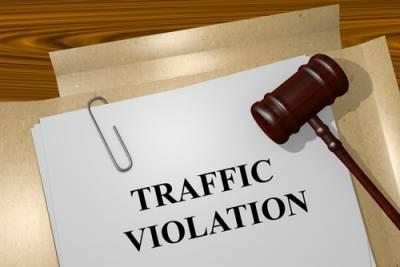 Free consultation
Free consultation630-953-3000
Your Voice Matters
 When a person is pulled over by a police officer or highway patrolmen, it is entirely common to feel helpless. If you are driving home after a night spent with friends and are fearful that you may be driving over the legal limit for blood alcohol content (the nationwide legal BAC limit is 0.08), it is important to know how to react. If convicted of a DUI, you could face significant fines, loss of driving privileges, and even potential jail time. Due to the severity of the criminal punishment that an offender can face for driving under the influence, it can be wise to refuse chemical testing. Below we will examine the potential ramifications of a test refusal.
When a person is pulled over by a police officer or highway patrolmen, it is entirely common to feel helpless. If you are driving home after a night spent with friends and are fearful that you may be driving over the legal limit for blood alcohol content (the nationwide legal BAC limit is 0.08), it is important to know how to react. If convicted of a DUI, you could face significant fines, loss of driving privileges, and even potential jail time. Due to the severity of the criminal punishment that an offender can face for driving under the influence, it can be wise to refuse chemical testing. Below we will examine the potential ramifications of a test refusal.
According to Illinois state law, a driver must adhere to an officer’s request for a chemical test. This is written in Illinois’ implied consent law, which states that a driver has authorized consent for testing of breath, urine, or blood if an officer deems probable cause of intoxication. It should be noted that refusal of chemical testing is not a criminal offense, but can come with significant ramifications.
 Here in the state of Illinois, thousands of drivers are arrested for driving under the influence of alcohol, each year. According to statistics compiled by the Illinois Secretary of State’s office, a staggering 27,046 DUI arrests were made statewide, throughout 2017. After being charged with driving under the influence, it is important to act quickly. A DUI conviction can not only come with harsh criminal punishment, but also significantly impact other aspects of your life. From difficulty securing employment to challenges finding housing opportunities, a DUI charge should not be taken lightly. If you have been charged with a DUI, it is important to speak with a legal professional.
Here in the state of Illinois, thousands of drivers are arrested for driving under the influence of alcohol, each year. According to statistics compiled by the Illinois Secretary of State’s office, a staggering 27,046 DUI arrests were made statewide, throughout 2017. After being charged with driving under the influence, it is important to act quickly. A DUI conviction can not only come with harsh criminal punishment, but also significantly impact other aspects of your life. From difficulty securing employment to challenges finding housing opportunities, a DUI charge should not be taken lightly. If you have been charged with a DUI, it is important to speak with a legal professional.
Due to the dangers of drinking and driving, the legal implications of a DUI conviction are incredibly harsh, in Illinois. If convicted, a first-time DUI offender will likely face a Class A misdemeanor, up to a year in prison, and as much as $2,500 in fines. A first-time DUI conviction will also result in a driver’s license suspension. While a second DUI conviction still constitutes a Class A misdemeanor, the driver will face license revocation for a minimum of five years. In the event of a third conviction, the legal punishments become much more severe.
 Here in the United States, it is well documented that approximately half of all marriages end in divorce. A divorce can be a challenging time for all parties involved, especially the spouses separating. When children are involved in the divorce process, a resolution can be hard to come by. In cases of domestic violence or narcotic abuse, it is necessary for a spouse to secure sole custody rights of their children. Yet in the vast majority of cases, a joint custody parenting plan can be the right choice. As you plan for a divorce, it is important to seek out the guidance of an understanding legal team, that can help you navigate the process of separation.
Here in the United States, it is well documented that approximately half of all marriages end in divorce. A divorce can be a challenging time for all parties involved, especially the spouses separating. When children are involved in the divorce process, a resolution can be hard to come by. In cases of domestic violence or narcotic abuse, it is necessary for a spouse to secure sole custody rights of their children. Yet in the vast majority of cases, a joint custody parenting plan can be the right choice. As you plan for a divorce, it is important to seek out the guidance of an understanding legal team, that can help you navigate the process of separation.
As you begin your life independently from your spouse, every parent’s top concern is the wellbeing of their children. While a joint custody parenting agreement can present some challenges, the benefits in terms of child development can far outweigh any adversity.
 On an annual basis, thousands of Americans make the difficult decision to pursue a divorce. A divorce can be an emotionally turbulent process. Without proper planning and competent legal guidance, one can come out of a divorce in less than ideal financial standing. As you prepare for the divorce process, it is critically important to speak with your legal team regarding the aspects of your separation, that are most important to you.
On an annual basis, thousands of Americans make the difficult decision to pursue a divorce. A divorce can be an emotionally turbulent process. Without proper planning and competent legal guidance, one can come out of a divorce in less than ideal financial standing. As you prepare for the divorce process, it is critically important to speak with your legal team regarding the aspects of your separation, that are most important to you.
Throughout your divorce, you need to understand the way in which certain aspects of your divorce can seriously impact your future. Fortunately, a quality legal team can help you smoothly navigate these issues.
Your Financial Future: A divorce can monumentally change the outlook of your finances. Speaking with your attorney about tax consequences of your divorce, the stability of your retirement plan, and the implications of marital debt can save you potential heartache down the road. As you prepare for divorce litigation, providing your attorney with a complete understanding of your financial situation can help them develop a plan that will ensure financial comfortability moving forward.
 Here in the state of Illinois, a reckless driving charge can come with serious legal ramifications. According to Illinois state law, a reckless driving conviction constitutes a Class A misdemeanor. If convicted, a Class A misdemeanor can come with up to $2,500 in fines, a maximum prison sentence of one year, and marks against our license. If a driver accumulates 3 traffic violations within a 12 month period, they will likely face a license suspension. It is important to note that reckless driving resulting in injuries to another party, come with more severe legal ramifications. If you have been charged with reckless driving, it is important to take the offense seriously. In the event of a traffic violation, contact a legal team that you can believe in.
Here in the state of Illinois, a reckless driving charge can come with serious legal ramifications. According to Illinois state law, a reckless driving conviction constitutes a Class A misdemeanor. If convicted, a Class A misdemeanor can come with up to $2,500 in fines, a maximum prison sentence of one year, and marks against our license. If a driver accumulates 3 traffic violations within a 12 month period, they will likely face a license suspension. It is important to note that reckless driving resulting in injuries to another party, come with more severe legal ramifications. If you have been charged with reckless driving, it is important to take the offense seriously. In the event of a traffic violation, contact a legal team that you can believe in.
It should come as no surprise that reckless driving charges are taken incredibly seriously here in the state of Illinois, considering the amount of fatal car accidents throughout the state. According to the Illinois Department of Transportation, an alarming 1,090 people died in motor vehicle collisions throughout the state, in 2017 alone. Due to the high number of statewide traffic fatalities, law enforcement officials across Illinois, are cracking down on reckless driving. Listed below are some of the most commonly cited forms of reckless driving violations.
 After being convicted of a crime, many people believe that they will be permanently marred by one mistake. A criminal record can impact you at important times in your life, such as when searching for employment or exploring housing options. Fortunately, in the state of Illinois, there are avenues one can pursue to remove convictions from their permanent record, the most common form being expungement.
After being convicted of a crime, many people believe that they will be permanently marred by one mistake. A criminal record can impact you at important times in your life, such as when searching for employment or exploring housing options. Fortunately, in the state of Illinois, there are avenues one can pursue to remove convictions from their permanent record, the most common form being expungement.
An expungement is defined as a court-ordered process in which any legal record of a prior arrest or conviction is sealed or removed from a criminal record. If you have been arrested or convicted of a crime, speak with an experienced attorney regarding your options, moving forward.
In a large number of criminal convictions, expungement is possible. In some cases, expungement can be granted immediately. If your case was stricken on leave (SOL), carried a lack of probable cause, or was acquitted in court, you may be eligible for immediate expungement.
 Every single year, thousands of Americans are abused by an intimate partner. According to the National Coalition Against Domestic Violence (NCADV), one American is abused every 20 minutes, throughout the United States. Domestic abuse does not always come in the form of physical violence but can manifest through intimidation tactics, verbal abuse, and psychological belittling. If you have a loved one or friend that is facing any form of domestic abuse, it is important to contact law enforcement officials immediately.
Every single year, thousands of Americans are abused by an intimate partner. According to the National Coalition Against Domestic Violence (NCADV), one American is abused every 20 minutes, throughout the United States. Domestic abuse does not always come in the form of physical violence but can manifest through intimidation tactics, verbal abuse, and psychological belittling. If you have a loved one or friend that is facing any form of domestic abuse, it is important to contact law enforcement officials immediately.
For those harmed by an intimate partner, the abuse can have life-long impacts on the mental and emotional well-being of the victim. Outside of the initial violence, victims of domestic violence are more likely to cause themselves self-harm, struggle with maintaining employment, and battle substance abuse issues. The psychological implications of domestic violence are well-documented, and every case of intimate partner abuse should be taken incredibly seriously.
 Every year, thousands of Americans make the difficult decision to file for divorce. For many couples, divorce represents a new lease on life, full of exciting possibilities. Yet, for parents fighting for sole custody of their children, the divorce process can be incredibly nerve-wracking. Many fathers believe that winning sole-custody of their children is a near impossibility. In all reality, fathers win custody routinely, throughout the United States, but it is important to work with your attorneys on how to approach your custody battle. If you believe that you should possess custody of your children, contact an experienced legal team, as soon as possible.
Every year, thousands of Americans make the difficult decision to file for divorce. For many couples, divorce represents a new lease on life, full of exciting possibilities. Yet, for parents fighting for sole custody of their children, the divorce process can be incredibly nerve-wracking. Many fathers believe that winning sole-custody of their children is a near impossibility. In all reality, fathers win custody routinely, throughout the United States, but it is important to work with your attorneys on how to approach your custody battle. If you believe that you should possess custody of your children, contact an experienced legal team, as soon as possible.
Every parent wants to have a relationship with their children, tragically for many fathers, they are robbed of any semblance of a parental relationship. Throughout the United States, a staggering 27% of fathers have no contact with their children at all. In many cases, this is due to the difficulty that fathers face winning custody battles.
 On an annual basis, hundreds of thousands of Americans are pulled over for violating basic traffic laws. While the vast majority of people will simply accept their ticket, pay the fee, and move on, these violations can have drastic implications on your driving future. Here in the state of Illinois, paying a traffic violation ticket will result in a mark against your driving record. Repeat driving offenses can result in license suspension or possible permanent loss of driving privileges. If you have been given a traffic ticket, it is critically important to consult with an experienced legal team, before making any decisions regarding the violations.
On an annual basis, hundreds of thousands of Americans are pulled over for violating basic traffic laws. While the vast majority of people will simply accept their ticket, pay the fee, and move on, these violations can have drastic implications on your driving future. Here in the state of Illinois, paying a traffic violation ticket will result in a mark against your driving record. Repeat driving offenses can result in license suspension or possible permanent loss of driving privileges. If you have been given a traffic ticket, it is critically important to consult with an experienced legal team, before making any decisions regarding the violations.
Within the Illinois Administrative Code, every traffic violation results in a number of points on your driving record. Accumulating a high number of points can result in license suspension or revocation. As stated in Illinois Section 1040.30, minor violations such as a non-working light or a speeding violation less than 10 mph over the legal limit, will likely result in no more than a 10 point penalty. The worse the offense, the higher the point penalty, as traveling more than 15 mph over the speed limit, can result in a penalty of up to 20 points, while reckless driving charges come with a penalty of 55 points.
 Every year, thousands of Americans are arrested on domestic battery charges. In the state of Illinois, domestic battery is defined as the act of knowingly causing physical harm to a family or household member. A domestic battery charge can lead to potential jail time and substantial monetary fines. An aggravated domestic battery charge could result in up to seven years behind bars. If you are in the midst of a divorce, a domestic battery charge can significantly impact the well-being of you and your family. If you are accused of domestic battery, it is critically important to contact a qualified attorney, as soon as possible.
Every year, thousands of Americans are arrested on domestic battery charges. In the state of Illinois, domestic battery is defined as the act of knowingly causing physical harm to a family or household member. A domestic battery charge can lead to potential jail time and substantial monetary fines. An aggravated domestic battery charge could result in up to seven years behind bars. If you are in the midst of a divorce, a domestic battery charge can significantly impact the well-being of you and your family. If you are accused of domestic battery, it is critically important to contact a qualified attorney, as soon as possible.
If you are in the process of a divorce, and are accused of domestic battery, it is likely that the court’s decision will weigh the accusations heavily in their decision-making process. In a custody battle, a domestic battery charge can lead to loss of child custody and potential loss of parenting time privileges. A domestic battery charge can also impact the court’s decision on issues of property ownership and financial allocation.

 630-953-3000
630-953-3000 1700 Park St., Suite 203F, Naperville, IL 60563
1700 Park St., Suite 203F, Naperville, IL 60563 Evenings and Weekends by Appointment
Evenings and Weekends by Appointment